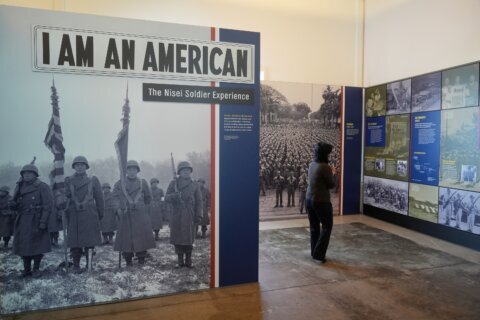
Gifts that keep on giving
Your time and attention during nursing home visits are wonderful gifts in themselves. But when there’s a holiday or birthday on the way, or you just want to pamper someone you care about, you have plenty of gift-giving options.
Just keep a few guidelines in mind:
— Space is limited in most nursing home rooms.
— Valuables can get mislaid or go missing — receiving expensive electronics or other pricey presents may actually make residents feel anxious.
— Because of the COVID-19 pandemic, there may be restrictions on how gifts can be delivered or brought in. Please call your nursing home facility to determine its procedures.
The best gifts for elderly nursing home residents leave them with a bit of extra comfort and enjoyment. Here are some tips from long-term care experts and a family caregiver/author with insight on what residents really like to receive.
Blankets and outerwear
Extra blankets are always welcome. Blankets brighten a room, while helping residents keep warm and cozy.
“Residents in nursing homes are always cold, even if it’s 97 degrees and humid,” says Chris Gebhart, activity director at Concordia at Villa St. Joseph, a long-term care facility in western Pennsylvania. A wearable sleeved blanket is perfect for sitting outdoors on the front porch on a mild day. A soft cotton jacket is another warm, practical idea.
Gripper slippers or socks
Cold feet need warm slippers. Fleece or fuzzy slippers with small rubber grippers on the bottom are a good find because they’re easy to put on and comfortable. Similarly, socks with grippers help keep residents safe by reducing the potential for falls and resulting injuries.
A bird feeder
Is your resident a nature-lover who has a window with an outdoor view? If so, you can encourage bird-watching, suggests Peggy Cole, a long-time family caregiver who writes about nursing homes and issues affecting older adults. More than anything, Cole says, her elderly mother and aunt loved the bird feeder that she installed on a shepherd’s hook on the grounds of the nursing home where they both lived.
“They would spend hours looking out of their personal room window, watching the birds and squirrels,” she says. “It gave them a lot of enjoyment.” With each visit, Cole would bring in bird feed, so volunteers could keep it filled. (You probably should run this by the nursing home staff in advance.)
Shared experiences
A gift can be something you do while visiting to make your time together more special. It might be an activity focusing on the resident’s unique talents or accomplishments, says Anne Weisbrod, director of Social Services at the Hebrew Home at Riverdale, in New York. She mentions a resident who in his previous day was a cartoonist.
“When the family comes, they bring something as simple as paper and a pencil,” she says. “While they’re visiting, they’ll show a picture and say, ‘Dad, let’s see how you would draw this.’ And they spend the visit drawing. It also sparks conversation and brings up memories, and it’s a good jumping-off point.”
The pleasure goes beyond reminiscing. “This man has dementia. But when he’s drawing, he’s right back to where he was and able to talk about the picture he’s doing,” Weisbrod says. “It’s so satisfying for him and for the family.”
Framed photos and artwork
Think wall decor for a resident’s room where surface space is scarce. Framed photos that serve as reminders of the past, such as wedding pictures or holiday shots, add an individual touch and a sense of family history.
Artwork — from grandchildren’s drawings to masterpiece prints — bring color and life to the room. An attractive calendar with larger numbers is a practical use of wall space.
Beauty sessions
For long-term care residents, making an appointment with an on-site cosmetologist or barber may be difficult now with COVID-19 restrictions and staff shortages. “Some facilities might not be able to have their beauticians in,” says Tammy Macklin, life enrichment director at Life Care Center of Boise, in Idaho.
That’s where you come in. Brushing, braiding or curling your loved one’s hair is a pleasant way to pass the time and leave the resident feeling pampered, Macklin says. For men, tending to their appearance could include cutting and grooming a mustache or beard.
Family members sometimes bring in cosmetics and do a makeup session with their relatives, Weisbrod says. It’s all about hands-on attention and giving residents the gift of looking their best.
Wreaths
Wreaths make the entrance to a resident’s room welcoming. Wreathes are typically associated with winter, but seasonality isn’t necessarily the point. In many nursing homes, wreaths with wintry holly and greens, autumnal themes or glittering concoctions of ribbons and bows can all adorn a single residence, regardless of the time of year. By helping residents easily find their rooms among look-alike units, wreaths also serve as landmarks, Cole notes.
Residents also love to decorate their windowsills, Gebhart says. There can be some competition for door and windowsill rights when people share a room, she adds: “That’s their space. That little space is all they have left, and they want to make it nice and homey.”
Holiday decorations
Decorating for an upcoming holiday lends a festive air to a resident’s room. Just keep size and safety in mind. If it’s a Halloween pumpkin or flowering cactus, choose a small one that fits on a windowsill. Live Christmas trees of any size aren’t allowed in residents’ rooms. “If they dry out, they become a safety and fire hazard,” Macklin explains.
Most facilities don’t have many extra electrical outlets, she says, and power strips are forbidden. “Battery-operated lights on (an artificial) tree are great.” A battery-operated menorah is also a room-brightening decoration. A Ramadan gift featuring Islamic calligraphy is another thoughtful way to bring holiday spirit to a resident.
Goodies for sharing
Bake a cake and everyone’s your friend. Cole sometimes brought a homemade cake when visiting her mother and aunt. She would set up at a dining-area table and slice the cake, and fellow residents would come by to chat up the family members in hopes of getting a slice.
Store-bought treats are also popular, including sugar-free versions for residents with medical conditions like diabetes. A box of individually wrapped chocolates or candies is a nice way for residents to enjoy and distribute treats to their neighbors.
Flowers
If someone loves flowers, a fresh bouquet makes a great surprise. When visiting her aunt and mother, Cole would sometimes bring a bunch of cut flowers. Arranging the blossoms together and then putting them in the dining room or other common area created a shared experience.
“If you place the vase in the middle of the table, everyone who walks by says: ‘Oh, where did you get the flowers?’ or ‘Aren’t those beautiful,'” she notes.
Sports team merchandise
Mugs, caps and jerseys and other sports merchandise with a team logo let residents proclaim their fandom. Among residents’ favorites are “any kind of hometown sports team item,” Gebhart says. “We have Steelers hats and Pirates T-shirts and (customized) mugs. Anything that’s sports-related because lots of residents still support their hometown team.”
Stationery
Attractive stationery, assorted pens and a sheet of stamps are thoughtful gifts. “Some of our residents still like to write,” Gebhart says. “They’re not of a generation of typing on a computer.”
On your end, you can look forward to receiving handwritten notes in flowing cursive and keeping in touch through a leisurely postal correspondence.
Bath and grooming products
Why not bring along a small basket filled with bottles of shampoo and body wash? Dry skin is a persistent problem for older adults, so lotion also comes in handy.
For residents who like using scent (and whose roommates aren’t bothered by it), a perfume flask makes a decorative gift. Men might enjoy receiving a bottle of bracing cologne or aftershave. Manicure paraphernalia — nail polish, emery boards and cuticle sticks — is perfect for residents who like to keep their nails in top shape.
Hygiene helpers
Unfortunately, group facilities, including nursing homes, can be breeding grounds for infectious viruses and bacteria, now more than ever. Hand sanitizers are useful and practical gifts to keep hands germ-free after spending time in common facility areas.
“I would bring in hand wipes and air freshener for the bathroom, because those (items) always went fast,” Cole says.
Stuffed animals
It’s nice to have something soft and cuddly, even when residents aren’t allowed pets of their own. “Some people enjoy stuffed animals, even people who are alert and oriented,” Weisbrod says. “As much as they know it’s a stuffed animal, it’s almost like something to care for. It gives them security. And in memory care, stuffed animals are very comforting.”
Scarves and accessories
Colorful scarves and decorative pins are simple accessories that add flair to a resident’s outfits. Accessories can be practical too. Cole suggests eyeglass tethers that residents can wear throughout the day as a simple, effective solution for keeping track of their glasses.
Costume jewelry
Residents love receiving beads, necklaces and other trinkets, Gebhart says. To be safe, avoid fine jewelry or other expensive items that could go missing between visits.
“My mom had me take home her Kindle and jewelry,” Cole says, after her mother lost several rings that became too loose for her fingers. “She had me take home her CD player. She was so afraid it would disappear that it caused more anxiety than it was of value to her. Things get lost. Things do walk away, even in the best of homes.”
Print subscriptions
A subscription to a favorite print publication helps a resident feel entertained and informed. A magazine such as Sports Illustrated or Good Housekeeping is something to look forward to in the mail. Subscriptions to national or local newspapers provide food for thought and maintain a connection to daily events the world outside of their nursing home. Large-type versions are available for some magazines like Reader’s Digest.
Radios
Radios are great for connecting people to the outside world, particularly in fluctuating periods of isolation or visitor restrictions. “A lot of our residents still listen to the radio,” Weisbrod says. Similarly, a special clock for the resident’s room can provide a sense of time and normalcy. “When you’re in isolation, every day becomes the same,” she says. And just calling someone helps keep them connected, she adds: “That’s a gift in and of itself — giving them your time and your caring.”
Craft supplies
Adult coloring books, paint brushes and paint, sewing kits, yarn for knitters and other supplies keep craft-loving residents happily occupied. Crafts can provide fodder for activities during visits or spark memories of lifelong pursuits.
For instance, Gebhart describes a resident, a former interior decorator, who still loves to sit and sort through fabric swatches, decorating magazines and blueprints of different rooms.
Games and puzzles
Break out a deck of cards or a Scrabble set and watch nursing home residents and visitors alike become quickly absorbed in the game. A box of trivia questions, mahjong tiles or Jenga pieces can stir anyone’s competitive juices, whereas jigsaw puzzles inspire group cooperation.
For residents who prefer solo activities, electronic or pen-and-paper sudoku or crosswords are also satisfying. Fair warning: If you take on elderly residents in word games, chances are high that their vocabulary is more extensive than yours.
A walker caddy
Residents who rely on walkers might appreciate a walker basket or caddy. Cole has written about possessions that really help residents, including a fabric walker caddy that you could sew at home. The caddy provides large pockets so users can organize and carry objects like cough drops or small notebooks. You can also find metal or fabric walker baskets, including some that come with cup holders, in stores like Walmart and CVS Pharmacy, or online.
Mixed media entertainment
“West Side Story,” anyone? A much-loved movie is a gift that a resident can enjoy over and over, whether viewing on his or her own DVD player or through the nursing home’s media room. You could also put together a playlist featuring songs from individual artists or focused on preferred genres like jazz to put on a CD.
Books in favorite genres with large print are welcome gifts for avid readers. Spend part of your visit watching movies or listening to music together, or reading aloud from a novel or newspaper. Many public libraries partner with local nursing homes in outreach programs to provide an assortment of free print and digital materials for residents.
An e-reader like a Kindle could be a “fabulous” idea, Weisbrod says, and perhaps you could supply a new book every month. However, she advises, before giving one just be sure the recipient doesn’t become anxious or frustrated when dealing with tech devices.
Gift cards
Gift cards of all sorts let residents pick out exactly what they would most enjoy. Residents love online shopping, Macklin says. Just verify that’s possible with the gift card you have in mind. Although store-specific gift cards don’t seem to be a problem, a prepaid Visa or MasterCard can be trickier to use online, she says. And while helpful staff members may sometimes volunteer to shop in stores for residents who can’t do it themselves, that luxury isn’t always available.
Who doesn’t love having a tasty and healthy meal delivered from their favorite eatery? “Other good gifts are Grubhub or DoorDash gift cards,” Macklin says. “Not that facilities don’t have great food, but residents still love the idea of being able to order out and have it dropped off.”
Great nursing home gifts:
— Sleeved blanket.
— Gripper socks.
— A bird feeder.
— Shared experiences.
— Framed photos, prints and mementos.
— A beauty session.
— Wreaths.
— Holiday decorations.
— Stationery.
— Goodies.
— Flowers.
— Sport team merchandise.
— Costume jewelry.
— Subscriptions.
— A walker caddy.
— Movies, music and books.
— Games and puzzles.
— Craft supplies.
— Bath and skin-care products.
— Perfume, cologne or aftershave.
— Stuffed animals.
— Scarves and accessories.
— A radio.
— Gift cards.








